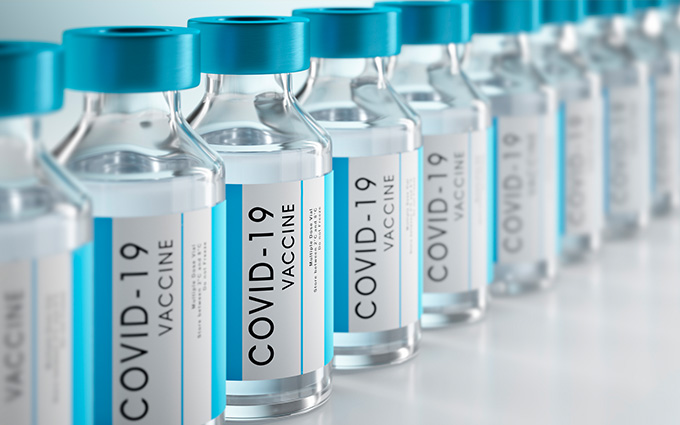
Is the COVID-19 Vaccine safe in pregnancy?

The answer is, yes! The Pfizer vaccine is recommended for pregnant women and can be given at any time during your pregnancy.
Vaccines are some the most researched and safest medicines available. They have saved millions of lives worldwide from diseases such as Smallpox, Polio, Chickenpox and Measles.
To explain how safe the Covid-19 vaccine is, it is good to understand first how vaccines work and then how their safety is researched.
The Pfizer vaccine does not contain any actual virus particles. It does not contain any Covid-19 infection. The vaccine contains a substance that replicates or looks like the virus. As the body thinks it is the Covid-19 virus (the official virus name is SARS-CoV-2) the body forms an immune response to it. Your immune system is amazing, recognising something not normally present in the body and attacking it. It is designed to act very rapidly, and intensely, to form immune cells that fight infection. It needs to act very quickly to eliminate any infectious threat, before the infection has time to overrun the body, potentially killing us.
Vaccines causes the immune system to form protective antibodies, primed and ready to defend off any further attack. Because the vaccine replicates the Covid-19 virus, if the person is exposed to the virus in the future the immune system will attack the virus quickly and strongly, significantly reducing the chance of it taking hold and causing the Covid-19 infection, or if it does cause infection significantly reducing the disease severity.
The protective antibodies formed are very small and can safely pass across the placenta to the baby, boosting the baby’s own immune system to respond to any future Covid-19 infection that the baby may experience after birth.
The vaccine administered is broken down and eliminated by the mother’s body quickly, mostly in the first few hours after having the injection, with the final fragments eliminated in the next few days. The vaccine particles are too small to cross the placenta, so they do not pass through to your baby. The placenta acts like a very strong filter. This is very important to understand, that the vaccine does not go through the placenta to the baby; your baby does not receive the actual vaccine. However, the baby does receive the mothers’ natural protective antibodies.
Research into the safety of vaccines can be performed quickly because if any issue arises it is nearly always due to the bodies’ immune system response, so it occurs within the first six weeks after vaccine administration. Remember the actual vaccine is broken down and eliminated from the body very quickly. In the case of Covid-19, as there have been so many cases worldwide, it was very easy to recruit enough people for the studies who became exposed to the virus and to then monitor for any adverse effect. Data has been collected on the safety of Covid-19 vaccines for over one year now, and more than 4 billion doses of vaccine have been administered worldwide to date, so there are very extensive databases confirming the safety of Covid-19 vaccines.
Also reassuring for pregnancy is that studies have confirmed that the vaccine does not pass through to the baby, and the baby itself does not form its own immune response to the maternal vaccine, which makes sense as the physical vaccine does not go through to the baby. The baby receives its mothers’ natural antibodies which continue to provide protection for the baby long after birth.

So, we can tell vaccination is safe, but what do we know about Covid-19 illness in pregnancy?
Covid-19 is potentially dangerous for all people. Studies have shown getting infected with Covid-19 in pregnancy increases the risk of severe illness and hospitalisation, requiring ICU treatment and death. Covid-19 infection in pregnancy also increases the risk of a premature birth. Research has shown that it is rare for the mother to pass on the virus to her unborn baby and maternal Covid-19 infection does not cause birth defects in the child.
Currently in Australia, Covid-19 vaccines are only approved for 12-year-olds and over. Under 12’s currently can’t be vaccinated and will be susceptible to Covid-19 outbreaks, especially in the future when lockdowns are ended, the international borders are opened, and the virus allowed to run free. When this happens, nearly all humans will be exposed to the Covid-19 virus. There is current worldwide research regarding vaccinating children. History has shown us that a lot of vaccines have not been approved for under one-year-olds, however.
In Australia, the Pfizer vaccine is approved for pregnancy and can be given at any stage of the pregnancy. There are two injection doses; first dose in the arm, and the second dose three to six weeks after the first. Maximum protection occurs 2 weeks after the second dose. Pregnant women have the same potential vaccine side effects as non-pregnant women. The vaccine does not cause a miscarriage, stillbirth or preterm birth.
The Pfizer vaccine provides 80% protection from Covid-19 illness if exposed to the virus, and well over 90% protection from severe Covid-19 disease and death.
It is important not to have any other vaccine administered within 2 weeks prior to or after the Pfizer vaccine course.
Accordingly, having the Pfizer vaccine in pregnancy is your golden ticket to protecting your baby from Covid-19 during pregnancy and importantly after birth.
You can make a free appointment with GP vaccination clinics or online through a government vaccination centre.
For further information please discuss with your Create Health Obstetrician.
« back


 (03) 9873 6767
(03) 9873 6767